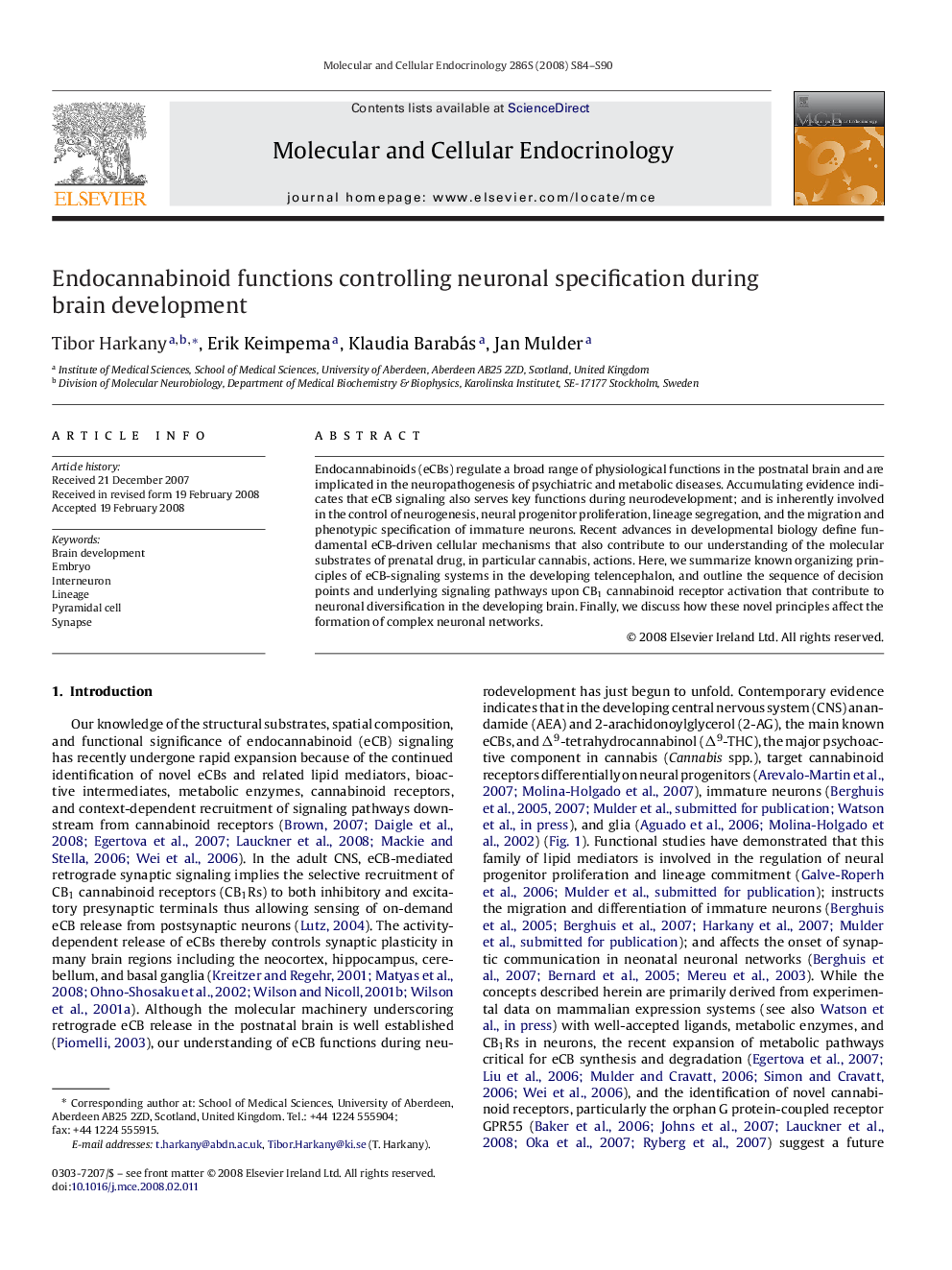| Article ID | Journal | Published Year | Pages | File Type |
|---|---|---|---|---|
| 2197633 | Molecular and Cellular Endocrinology | 2008 | 7 Pages |
Endocannabinoids (eCBs) regulate a broad range of physiological functions in the postnatal brain and are implicated in the neuropathogenesis of psychiatric and metabolic diseases. Accumulating evidence indicates that eCB signaling also serves key functions during neurodevelopment; and is inherently involved in the control of neurogenesis, neural progenitor proliferation, lineage segregation, and the migration and phenotypic specification of immature neurons. Recent advances in developmental biology define fundamental eCB-driven cellular mechanisms that also contribute to our understanding of the molecular substrates of prenatal drug, in particular cannabis, actions. Here, we summarize known organizing principles of eCB-signaling systems in the developing telencephalon, and outline the sequence of decision points and underlying signaling pathways upon CB1 cannabinoid receptor activation that contribute to neuronal diversification in the developing brain. Finally, we discuss how these novel principles affect the formation of complex neuronal networks.
